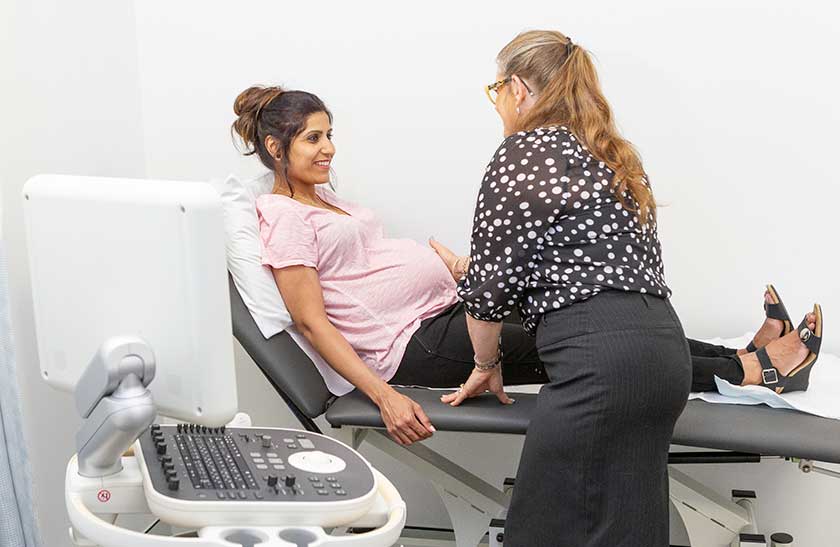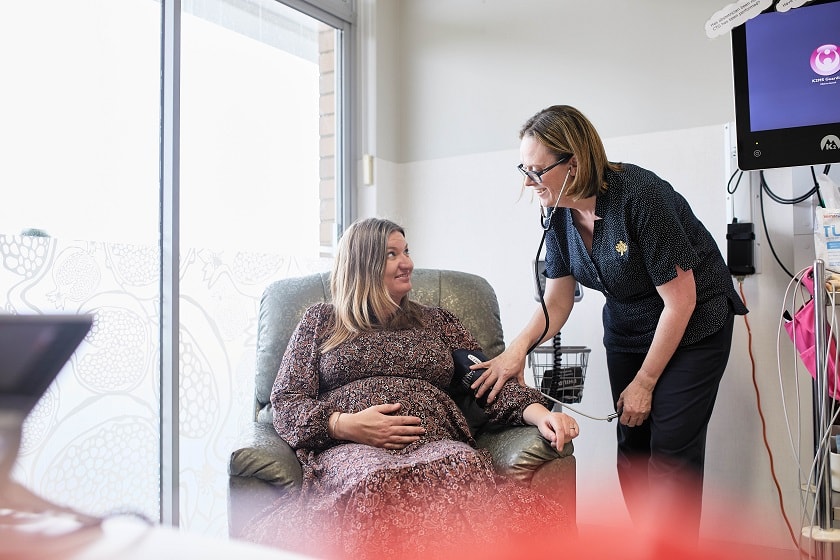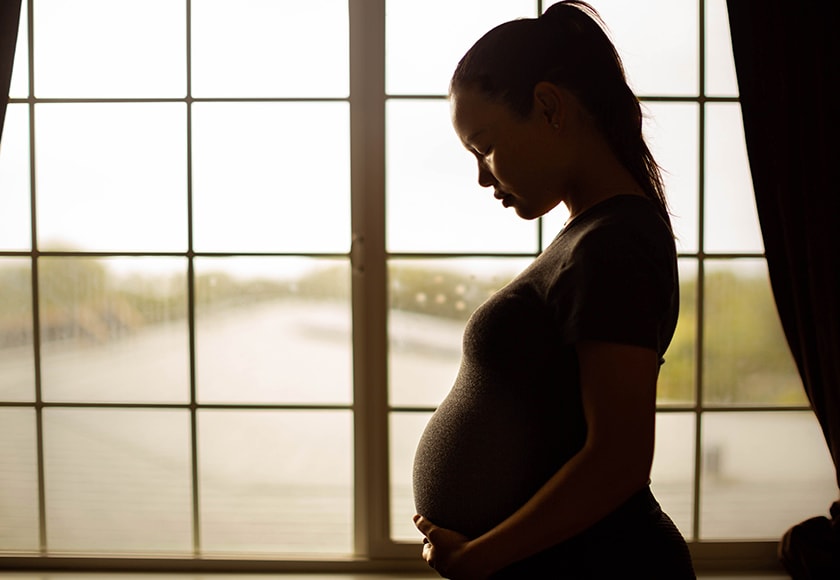Are pregnant women at increased risk of severe illness with COVID-19 compared with the general public?
Based on what we now know about COVID-19, pregnant women might be at an increased risk for severe illness from COVID-19 compared to the general community.
If an unvaccinated pregnant woman acquires COVID-19, there is a high risk of complications in terms of both maternal health and potentially, death and loss of the baby. In addition to this, there is also an association with pre-term birth.
Therefore, if you are pregnant, we recommend you get vaccinated (double dose and booster), practise good hygiene, physical distancing, follow the limits for public gatherings and isolate if required, to reduce your risk of acquiring the virus.
Should pregnant women continue attending antenatal appointments?
Yes, antenatal care is essential to help your health care team support you and your baby to stay healthy. Antenatal care can help identify any potential risks so that they can be prevented or reduced.
Many appointments are offered over the phone or via video conference instead of face-to-face. Speak to your health care provider, your obstetrician or midwife, if you are concerned about attending your appointments and to see what options might be available.
Women should not delay contacting their health care provider or coming to hospital if they have any concerns about their pregnancy or think they may be in labour.
Should pregnant women get vaccinated?
Yes. During pregnancy, women experience changes to their immune system which might make them more susceptible to viral respiratory infections, including COVID-19. This is one of the many reasons we encourage pregnant women to be fully vaccinated against COVID-19, in addition to whooping cough and the flu.
Read ‘Should I get the COVID-19 vaccine when pregnant’.
Is it possible to transmit the illness to my baby while breastfeeding?
There are no reports showing the COVID-19 virus is present in breast milk.
With this in mind, we encourage you continue breastfeeding as breast milk provides protection against many illnesses.
If you have been diagnosed with or suspected of having COVID-19, we recommend you take some additional precautions while breastfeeding or in close contact with your baby, as you would for any other virus or infection. It’s important to:
- wash your hands before and after touching your baby – use soap and water for 20 seconds or alcohol-based hand sanitiser
- routinely clean and disinfect surfaces you have touched
- wear a mask while in close contact including while breastfeeding
- have a healthy adult assist you to care for your baby where possible
Find out more on the Australian Breastfeeding Association website.
What can I do to assist with the prevention or spread of COVID-19?
First and foremost, get vaccinated (double dose and booster).
Other things you can do to protect yourself and others include:
- physical distancing – where possible, keep 1.5m away from people, especially those who are immunocompromised
- practise good hand hygiene – wash your hands regularly with soap and water for at least 20 seconds, particularly after going to the toilet and before eating food. Alcohol based hand rub is an acceptable alternative
- cover your nose and mouth with a tissue when coughing or sneezing OR cough or sneeze into the crook of your elbow. Encourage others to do the same. Make sure you put the tissue into a bin and then wash your hands afterwards
- avoid touching your eyes, nose and mouth with unclean hands
- don’t go to work when you’re sick
- eat healthy with a balanced diet and exercise
St John of God Health Care COVID-19 information
St John of God Health Care is committed to providing safe and compassionate care to all our patients and clients, and to keeping our communities safe.
For more information about COVID-19 in your state, including current restrictions, please check these links for the latest updates:








